Choosing a Xiaomi TV
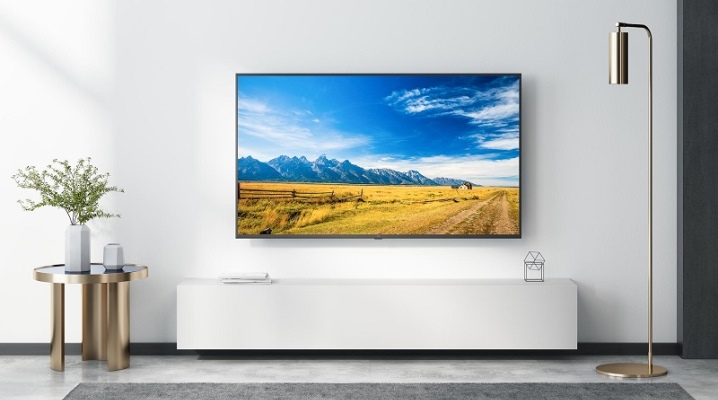
The Chinese company Xiaomi is well known to Russian consumers. But for some reason, it is more associated with the mobile technology sector. Meanwhile, an increasingly relevant topic is how to choose a Xiaomi TV and how to use it.
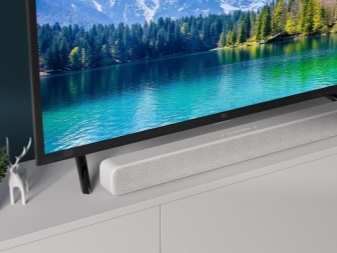
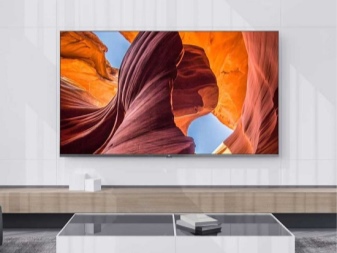
Peculiarities
Finding general and private reviews on Xiaomi TVs is easy, but it would be much more correct to summarize. Products of this brand, like other Chinese goods, are quite affordable. Moreover, their quality does not cause any complaints. The corporation tries in every possible way to use high-quality materials. The design is invariably strict and laconic - this is a common corporate feature.
In the production of Xiaomi, they are actively used first-class components from LG, Samsung and AUO... As a result, excellent quality of the displayed picture is guaranteed. Even in models that are assembled using inexpensive IP5 matrices, the image is beyond praise. Decent characteristics were achieved in terms of sound, control from the phone, and integration with the MiHome proprietary complex.
It is also worth considering that part of the production has been moved to Russia.
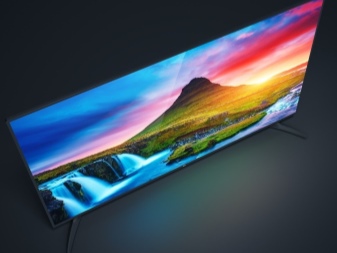
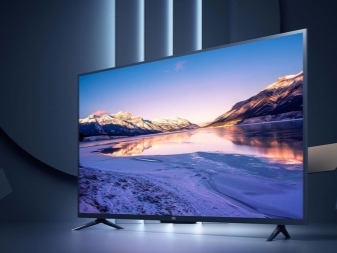
Marking
The following groups are distinguished:
- 4A (most budget options);
- 4S (these TVs differ in support of artificial intelligence and especially high-quality sound);
- 4C (simplified modifications of the previous version);
- 4X (selection of models with enhanced matrix);
- 4 (this line includes flagship developments).
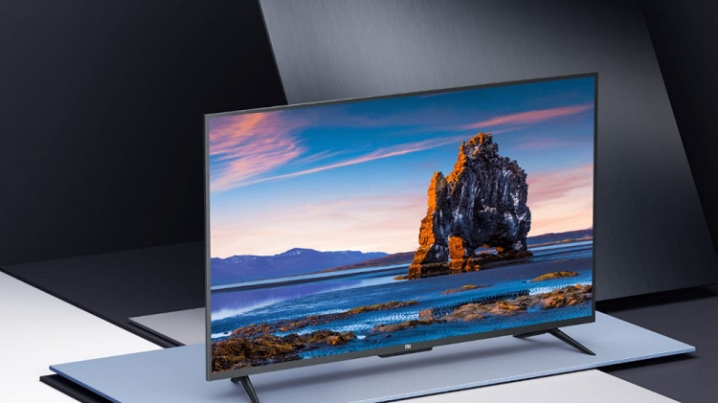
Series
4A
It is appropriate to review this line on the example of the Mi TV 4A model with a 32-inch screen. The manufacturer promises the picture quality at the HD level. A video processor of the Mali 470 MP3 model is installed inside. Direct screen resolution is 1366x768 pixels. There is a standard type audio input (3.5 mm) and the ability to connect to Ethernet.
It is also worth noting the following characteristics:
- viewing angles 178 inches;
- support for FLV, MOV, H. 265, AVI, MKV formats;
- support for DVB-C, DVB-T2;
- 2 x 5 W speakers.
When choosing devices with a diagonal of 49 inches, it is useful to pay attention to a representative of the same line. The HD 1080p display is complemented by voice control. The Learning Mode makes the TV much more comfortable than ever before. Sound quality fully complies with the Dolby Surround standard. Consumers have access to content for every taste.
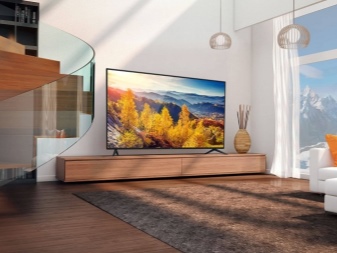
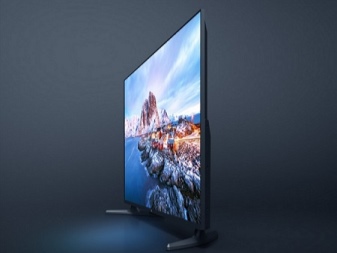
4S
This lineup brings together, as already mentioned, several new TVs. A striking example of this is a model with a diagonal of 43 inches, namely Mi LED TV 4S 43... The device displays an especially high definition picture. A 12-key remote control with a voice mode option helps to simplify operation. It works by transmitting a signal over Bluetooth.
Of the other important parameters, it is worth noting:
- excellent audio (Dolby + DTS);
- 4-core processor with 64-bit work;
- a wide variety of ports;
- the body is completely made of metal.
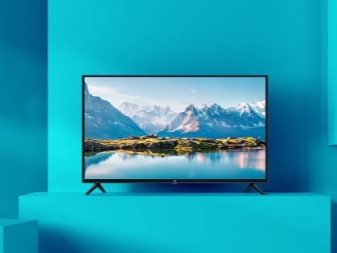
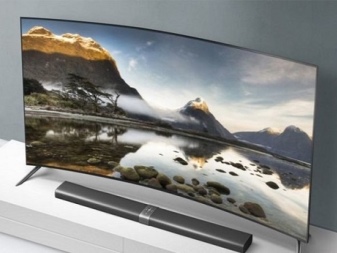
As for big headlines like “Xiaomi has released a number of OLED TVs and is going to provide them to the whole world”, these are premature messages. In reality, the appearance of such a technique was planned for the beginning of 2020. The company promises that the cost of such products will continue to be less than that of similar products from other manufacturers. In this segment, Xiaomi plans to confidently challenge such giants as Sony, Samsung and LG. It is planned to make the key factor of success precisely the comparative cheapness - it will apply to both particularly budgetary and models with quantum dots.
If 43 inches seems too small, it is worth paying attention to the model with a 55-inch screen, including a curved screen. The firm promises to provide gift subscriptions to a number of online cinemas and other specialized services. PatchWall's smart mode makes it much easier to choose options and make decisions. It is also useful to note the excellent Bluetooth remote and the significant number of ports. The device looks emphatically futuristic, which already commands respect. Full HD mode is fully supported.
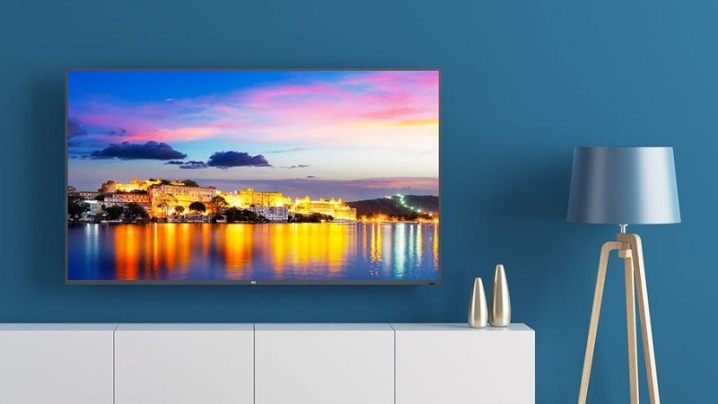
You can also emphasize:
- Dolby + DTS double audio decoding;
- 2 speakers emitting 10W stereo sound;
- equipping the speakers with a professional bass reflex;
- support for HDR technologies;
- the presence of a television receiver with a 50-inch screen, identical in parameters.
And there is another version in this line. It is already designed for 75 inches. In comparison with others, in addition to ultra-high resolution, the model also boasts a voice assistant. 2GB of RAM and 8GB of internal storage is serious. Implemented support for Wi-Fi, Bluetooth.
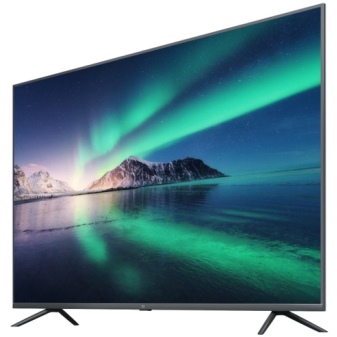
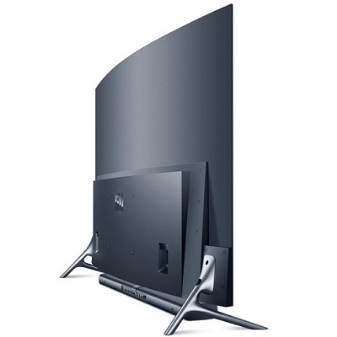
4C
But already now, the modification of the Mi TV 4C with a 40-inch screen is in great demand. Its attractive feature is the smart Android operating system.... The surface resolution reaches 1920 x 1080 pixels. The screen responds in 9ms. The static contrast ratio reaches 1200 to 1.
Other nuances:
- 3 HDMI ports;
- vertical and horizontal angle of 178 degrees;
- frame change at a speed of 60 Hz;
- 2 USB inputs;
- full HDR support;
- audio system power 12 W.
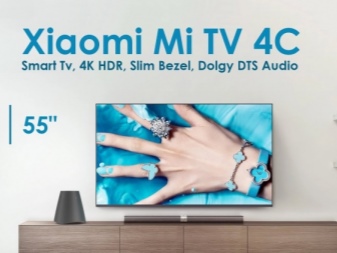
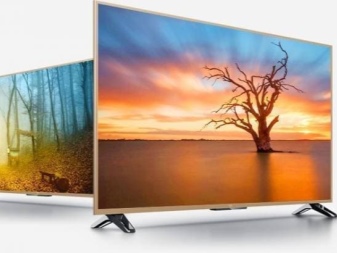
4X
There is an excellent modification with a 65-inch screen. It has a total current consumption of 120 watts. By default, the Android operating system is installed with the MIUI shell. A processor with a frequency of 1.5 GHz is structurally provided. 8 GB of persistent storage has 2 GB of RAM.
Other properties:
- video memory frequency 750 MHz;
- viewing angles 178 degrees;
- speaker sound power 8 W;
- permissible storage temperature from - 15 to + 40 degrees.
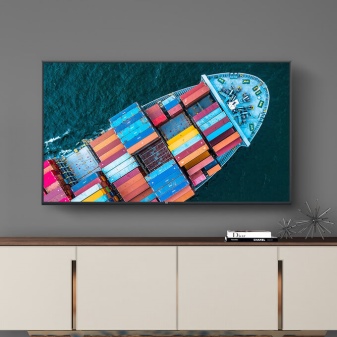
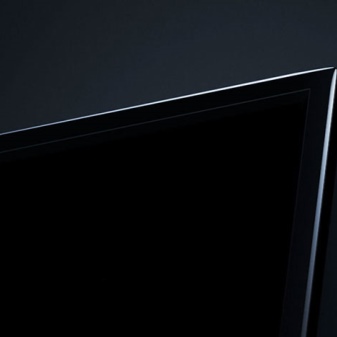
4K
With 4K resolution, there is a snazzy 70-inch TV. On Redmi TV, you can enjoy watching TV in peace from just 1.9 - 2.8 meters from the display surface. Added to 2 GB of RAM is 16 GB of ROM. There is a dual-band Wi-Fi module, almost any model can have white color, including this one.
Recently, it has become possible to order TVs of the "5" line, including those with frameless housing. The diagonal of the Xiaomi TV Pro is 55 or 65 inches. The body is made entirely of metal.
The effect of the visual absence of the frame is achieved thanks to its radical thinning. In general, the result is a brilliant design.
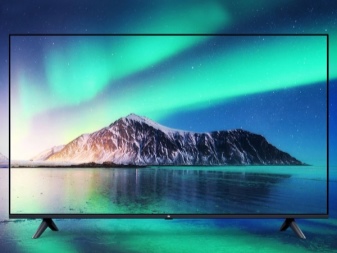
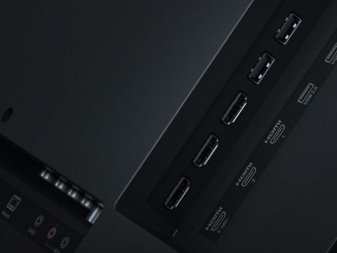
How to choose?
Xiaomi TV should be chosen first of all diagonally across the screen. The point is not even that it affects health (with the modern level of technology, visual perception is preserved). The reason is different - if the size of the display is large, the picture quality can be annoying. It is better to focus on the usual numbers of correspondence between the area of the room and the size of the screen.
Otherwise, you can focus on the following parameters:
- power consumption;
- brightness;
- contrast;
- the number of ports available;
- permission;
- matching the TV to the appearance of the room.

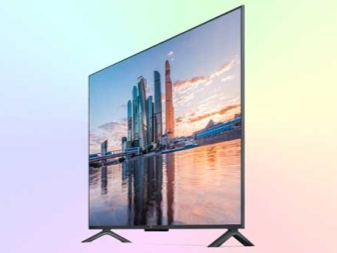
How to set up and use?
It is best, of course, to be guided by the instructions for a specific Xiaomi TV model. But the general rules are about the same. To connect the device, you need to use the standard set of fasteners that comes with the device. A typical remote control from this company always runs on 2 conventional AAA batteries. Of course, for each model it is better to take a specialized remote control, and not a universal device.
Synchronization of the control unit and the TV itself occurs by pressing the center button. Sometimes there are problems with recognizing the remote control itself.Then you only need to press the 2 round keys for a couple of seconds. Then the synchronization attempt is repeated.
The location region can be selected and set using the joystick on the remote control, and the language is selected in the same way.
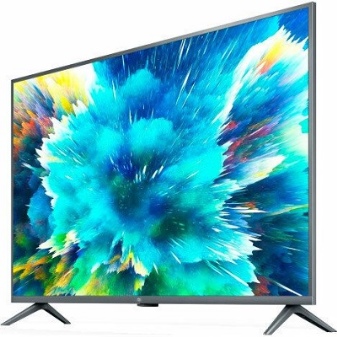
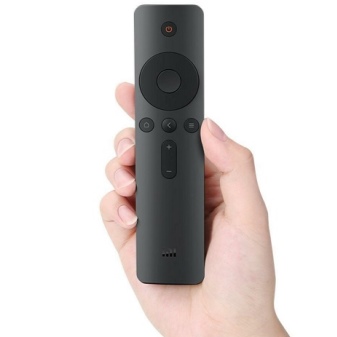
You can also use a regular smartphone to control Xiaomi TVs. But this topic should be considered separately a little later, now it will only get in the way. It should be noted that the full use of smart technology implies the installation of various programs and the involvement of third-party services. Each of them has its own subtleties. After connecting to Youtube, you need to immediately abandon other Google services.
Not a single user in the world has yet received real benefit from them, but such applications are regularly engaged in the delivery of advertising. For videos, it's better to specify HD quality or even Full HD. From online cinemas, the most popular options will probably be Lazy Media, FS Videobox... The most convenient way to connect to IPTV is using the Lazy IPTV program. And so that the image quality does not suffer, an additional installation of Ace Stream Media is recommended.
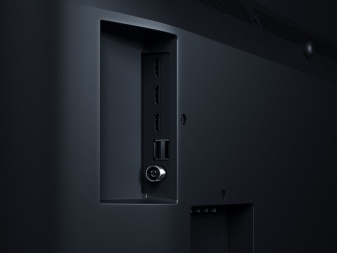
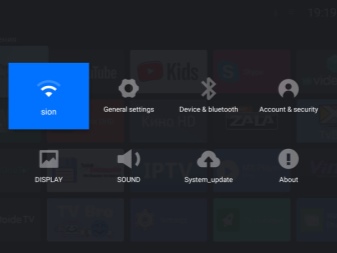
You also need to put:
- an internet browser designed to run on TVs;
- file manager (will simplify navigation when connecting flash drives or other media);
- keyboard with Russian letters (most users will be satisfied with the Go keyboyard).
Important: only files that are officially provided by a Chinese company can be used for firmware. Otherwise, no warranty or service claims will be accepted. If the previously made firmware is damaged, you cannot try to install a new application on top of it. It is imperative to reset all settings. It is performed like this:
- disconnect the TV from the mains for 10 minutes;
- turn it back on;
- press the "home" button on the remote control (while the remote control should look away from the receiver itself);
- press the start button on the remote control and direct it in the desired direction while holding this button.
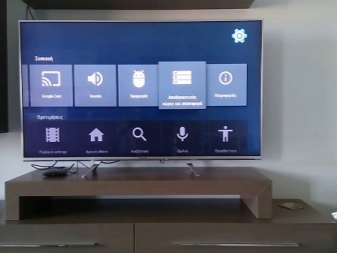
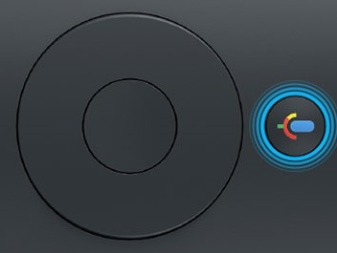
Russification of Xiaomi TVs is undertaken at your own peril and risk. This must be borne in mind before following the dubious value instructions from the web. If it is already firmly decided to Russify the device, it must first be flashed via USB or via Wi-Fi with the latest firmware version. Next, you will have to obtain superuser rights. Without them, electronics does not allow language settings to be controlled.
Whether to delete unnecessary Chinese files and so on from the TV's memory is up to the user himself. Even experienced specialists often cannot figure it out to the end. Many people are also interested in such a topic as connecting a wireless display to a Xiaomi TV. For this purpose, either Chromecast or Wi-Fi Display interfaces are used. It is highly recommended to inquire about the availability of such options on your mobile device in advance.
But all this does not allow you to forget about the main application of the device, namely, connecting to terrestrial or cable television channels.
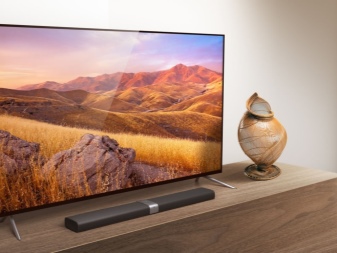
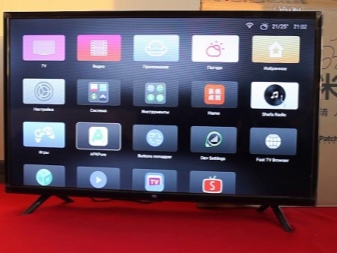
And in order for them to be shown without problems, you must first of all put the TV itself correctly. For normal installation, use only approved threaded brackets. When a TV receiver is installed, it is often necessary to simply plug the antenna or cable belonging to the provider into the appropriate socket. The subsequent setup is quite simple, and no doubt everyone who has done it at least a couple of times on another TV will figure it out. But when using a cable connection, sometimes a CAM with a decoder card is required.
This module is inserted into the CI + slot on the back of the Xiaomi. When searching for broadcast sources, often only digital stations are found. The cable option applies, of course, when using digital cable TV services. Through advanced settings, you can optimize the operation of the device both in one case and in another.
It is very useful to use this section so that, for example, digital and analog channels do not overwrite each other during sequential searches.
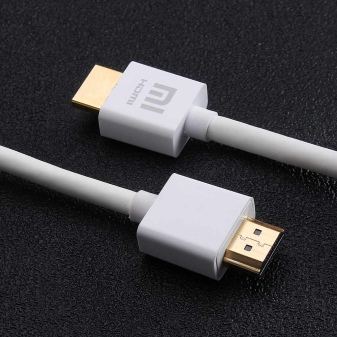
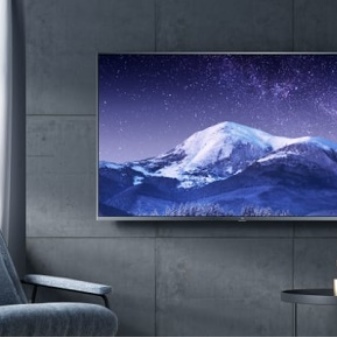
How do I connect my phone to a TV?
The Xiaomi TV connects very well to smartphones of the same brand. However, it can also be connected to gadgets of other companies. The easiest and most practical way to connect is with an HDMI cable. We'll have to use a MicroUSB Type C to HDMI adapter. But sometimes it is worth using a standard USB cable. The problem is that it only allows you to play files recorded on a mobile media. But playing them shouldn't cause any difficulties. There is no need to use additional programs. More functional option with Chromecast. He will provide:
- wireless broadcasts from TV to smartphone;
- additional media functions;
- full access to Youtube and Google Chrome.
It is perfectly reasonable to use a Wi-Fi network in many cases. This is a special Wi-Fi Direct protocol. It is even possible in this format to use various programs for "data exchange over the air". Returning to the use of HDMI, it is worth emphasizing that the reasons for the absence of a picture or sound should be looked for in a connected smartphone. Normally, everything adjusts automatically, but sometimes there is a need to edit something manually.
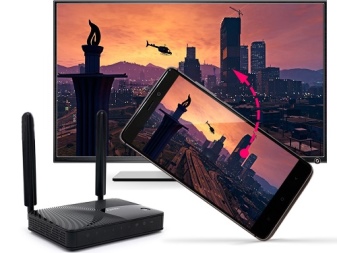

Review overview
In the assessments of ordinary buyers and experienced professionals, attention is drawn to the fact that Xiaomi appliances perfectly perform basic practical functions. The quality of sound and picture (just those moments that are most expected from the TV) are extremely rare to criticize. Even when it comes to the most advanced 4K format or Hi-Res audio playback. At the same time, which is important, Chinese engineers managed to achieve lightness and comparative compactness from most of their models.
This was not achieved at the expense of the technical stuffing. According to many people's evaluations, Smart TV mode works very well and stably. All components are purchased from official suppliers and are carefully matched. In the latest developments of the company Xiaomi, very thin cases are used. Thanks to careful engineering, this is not reflected in the strength.
In the comments of the owners of TVs of this brand, attention is often focused on the convenience of the "software ecosystem".
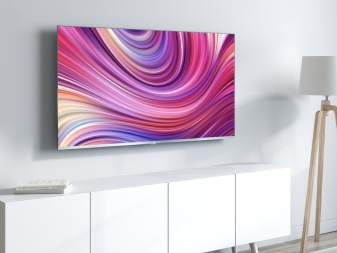
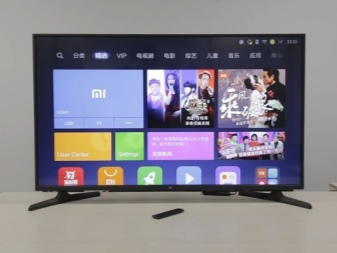
The Android OS is compatible with a wide range of applications and is easy to upgrade. Simplicity and consistency of control from the remote control is also noted. And the remotes themselves are quite "long-range", they allow you to control TVs at a considerable distance. If we analyze some other statements of specialists, ordinary users, then it is worth paying attention to:
- decent quality matrices (no unnecessary highlights);
- fine tuning of the sound;
- convenient location of the ports at the back (you can connect everything you need there, even when suspended);
- lack of any noticeable color distortion;
- minimal functionality of the basic firmware, the presence of a number of flaws in it;
- support for digital TV without additional set-top boxes;
- convenient access to the Google Play Market;
- the need to use an additional adapter for the mains plug.
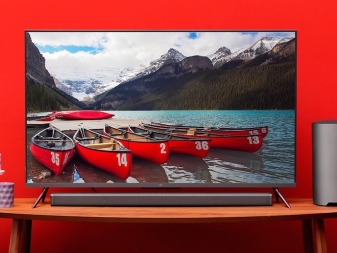
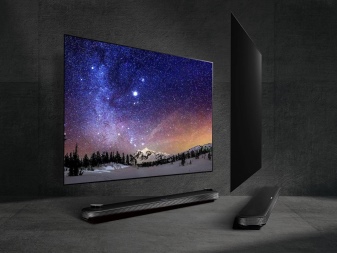
In the next video, you will find a full review and experience of using the Xiaomi Mi TV 4S TV.













The comment was sent successfully.